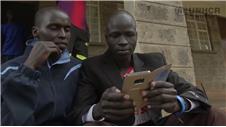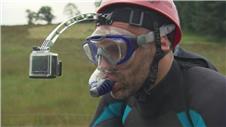7msports > Others Video > WHO reject call to postpone Rio Olympics
-
The World Health Organisation (WHO) on Saturday (28th May) rejected a call to postpone or cancel the Rio Summer Olympics over concerns about the Zika outbreak in Brazil.
The World Health Organisation insisted on Saturday that there was no need to rethink the staging of the Rio Olympics, despite the advice of more than a hundred health experts, who issued an open letter to the WHO calling for the games to be delayed or relocated "in the name of public health".
Friday's (27th May) letter noted that despite increased efforts to wipe out the mosquitoes that spread Zika, the number of infections in Rio de Janeiro had gone up rather than down.
Speaking in Geneva, the WHO's executive director of the Outbreaks and Health Emergencies Department, Bruce Aylward, said the Games should "go ahead as planned".
SOUNDBITE (English) Dr Bruce Aylward, Executive Director, Outbreaks and Health Emergencies, WHO:
"WHO's response to the concern about the timing of the Olympic Games in Rio de Janeiro is that based on a very careful risk assessment and all the information we have gathered so far about this disease, these Games should go ahead as planned and we should continue to work to make sure they are as safe as possible."
SOUNDBITE (English) Dr Bruce Aylward, Executive Director, Outbreaks and Health Emergencies, WHO:
"In fact we need to look carefully at what actually drives the movement of Zika around the world and right now we know that over one billion people are moving internationally, by air, every single year. This outbreak has been going on for two years and we have lots of evidence that this virus has already been moving. Over 60 countries have had evidence of infection of this virus, many more are finding it in returning travellers, and have been for some time, which suggests that this virus is already moving and efforts to ban the movement, or restrict the movement of half a million people to one area, which at that time will have a relatively low level of transmission of Zika is not going to make a difference to the movement of this virus internationally."
SOUNDBITE (English): Dr Bruce Aylward, Executive Director, Outbreaks and Health Emergencies, WHO:
"WHO does not have a formal relationship with the International Olympic Committee. In the past we have had MOUs, or memorandum of understandings, in which we agreed to promote good health, to promote activity, to reduce the risk of diseases like hypertension and diabetes and the like, and when it comes to Olympic games, we don't actually work at that level, we work with the local organising committee through a task force on public health to make sure they are prepared to manage the consequences of having hundreds of thousands of people in a very small area to participate in, or observe an Olympic games and that is a very different thing which is done through the local organising committee and in the case of Brazil, with the government of Brazil."
Video Category
Video Info

WHO reject call to postpone Rio Olympics
Sunday, May 29 2016Category:Others













